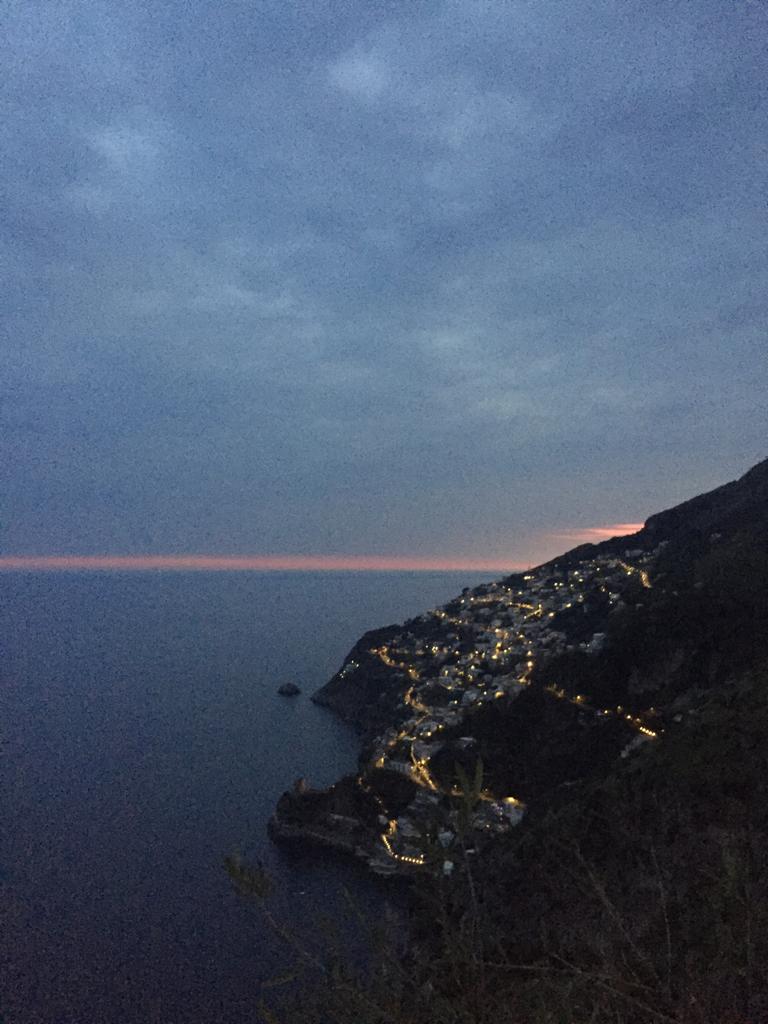What is Normality ?
The reported number of deaths from coronavirus in Italy rose by 433 on Sunday, 49 less than on Saturday, taking the total number to 23,660.
The infection rate is flattening, with the number of new diagnosed cases rising by 486, a drop of 323 since Saturday. The number of intensive care beds in use continues to fall.
On the Amalfi coast, where Giocondo makes his home and where he is in lockdown, there have been only two diagnosed cases, and neither is serious. His region, which includes Naples, Capri, Vesuvius and the Amalfi coast, is the third most populous in Italy and has had only 293 deaths, just a bit more than 1% of the country’s total.
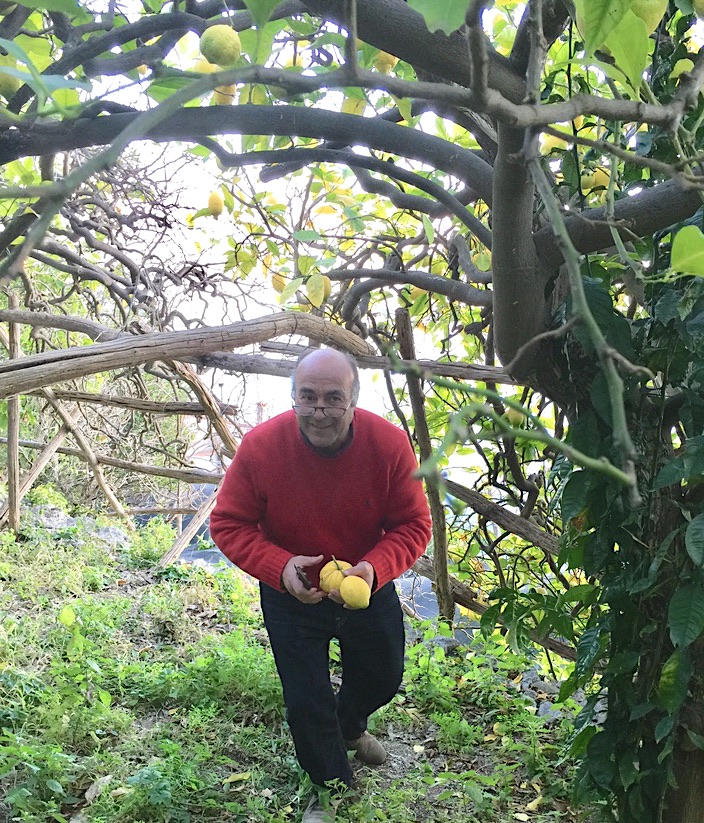
Giocondo lives alone, but you would never know it.
Like most every Italian I know, he is making effective use of every social platform that he can. His photos of a fisherman coming in from a night at sea, or a wild gladiola he located on a walk, or the pastiera gifted to him by Cristina, his neighbor across the alley, are highlights for friends scattered across the world.
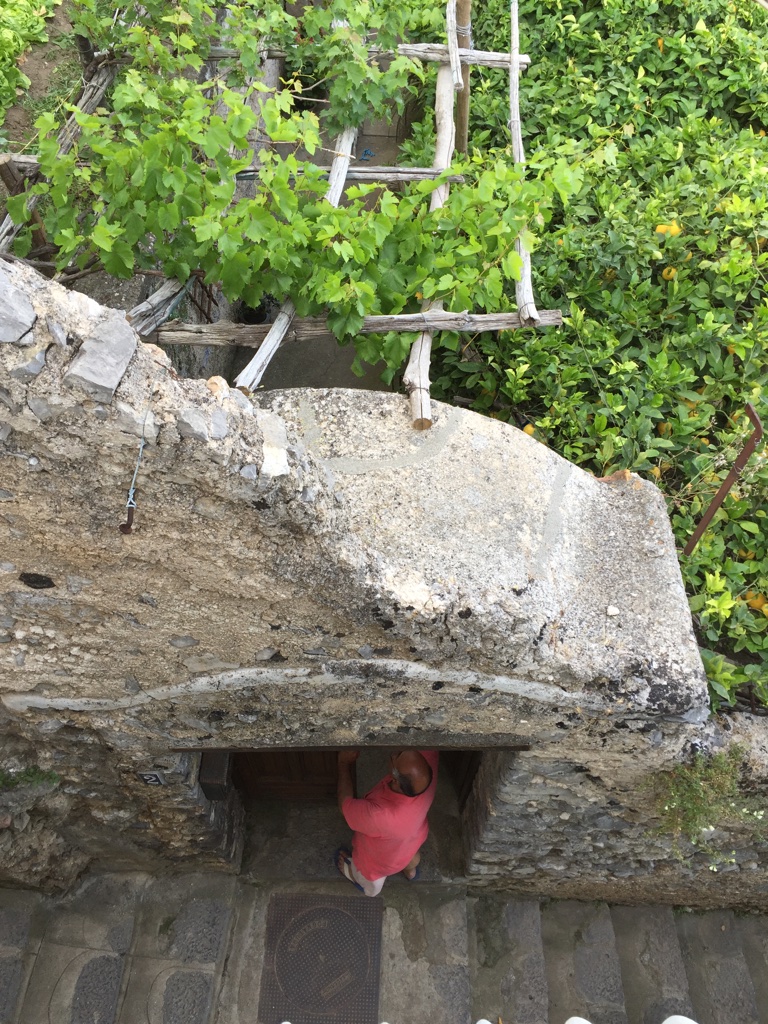
Giocondo is a case in point. He like all my Italian friends with gardens or terraces, not surprisingly, is more serene than those without.
COVID’s arrival coincided with spring’s. Italians with outdoor space can escape their stir-crazed state and become lost in the wonder of a geranium that buds, or a jasmine flower that unfurls or a humble dandelion that seeds itself in a crack in the terrace pavement and is blooming its heart out.
The highlight of the day for my friend Mariangela in Emilia Romagna is wandering in the garden with her children, something they all look forward to so much that they store up the anticipation and make it a once-a-day activity to be indulged in for as long as they wish.
Giocondo lives in the garden town of Furore (Amalfi), with 700 neighbors. The access to his house is by steps, and everyone does them, from the youngest to the eldest.
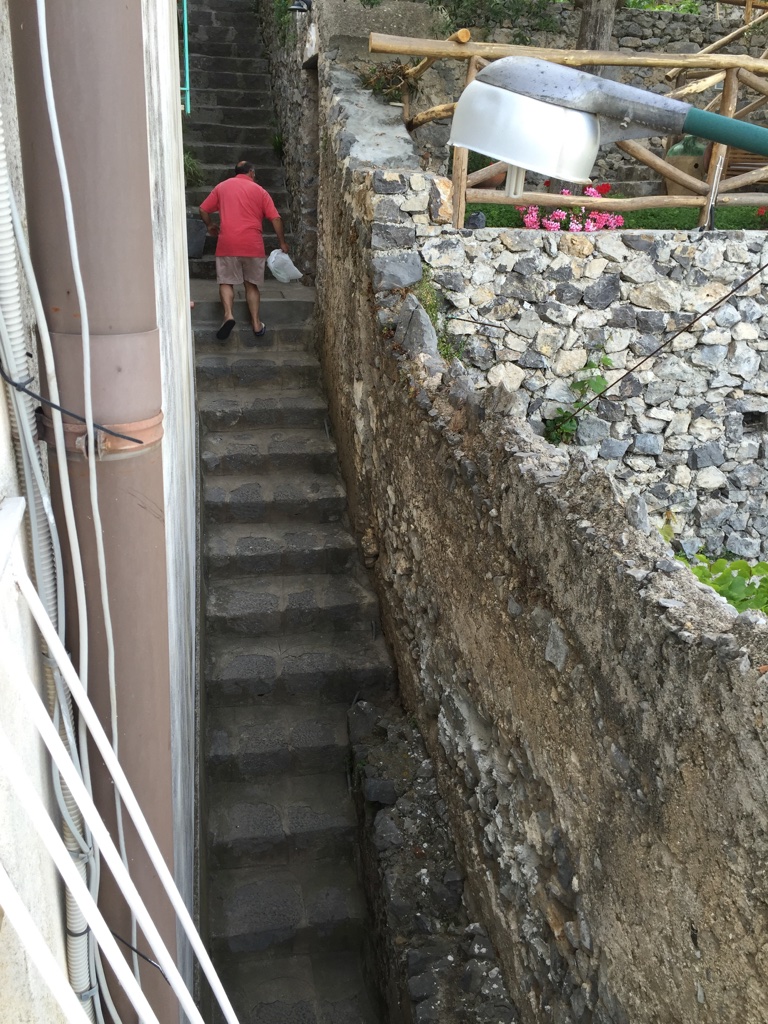
If you are very old you are carried up and down on a chair.
Off the steps — 170 down to the upper town’s small parking lot, and the church of Sant’Elia — are earth terraces, and on these are houses and gardens. Now days very few gardens are tended with care. One belongs to Cristina, who made Giocondo’s pastiera, and another to Assunta, who in this photograph is digging up new potatoes for Easter lunch.
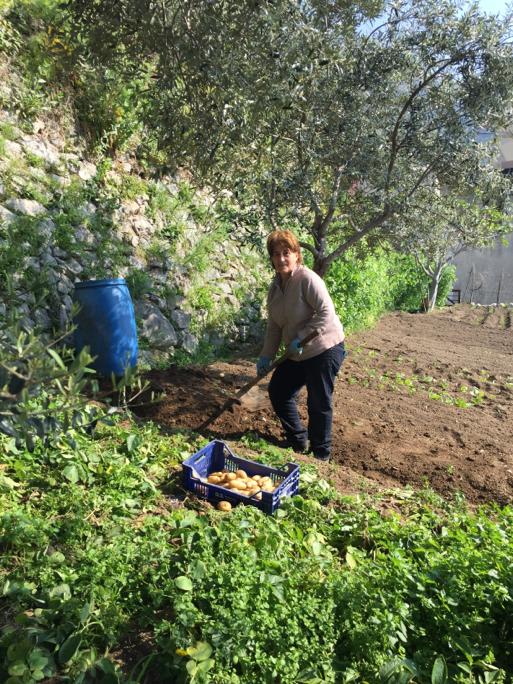
These are very special potatoes, and grow only in Furore; during the war, they kept villagers well fed while on the coast, just a few kilometers away, there was widespread hunger.
When Giocondo throws open his terrace doors, he says that the first thing that he hears is the buzz of bees — more bees than he can ever remember hearing. They are in ecstasy as his Maltese orange tree is in bloom. Giocondo says that the fragrance is so heady that you can surely smell it in his photo.
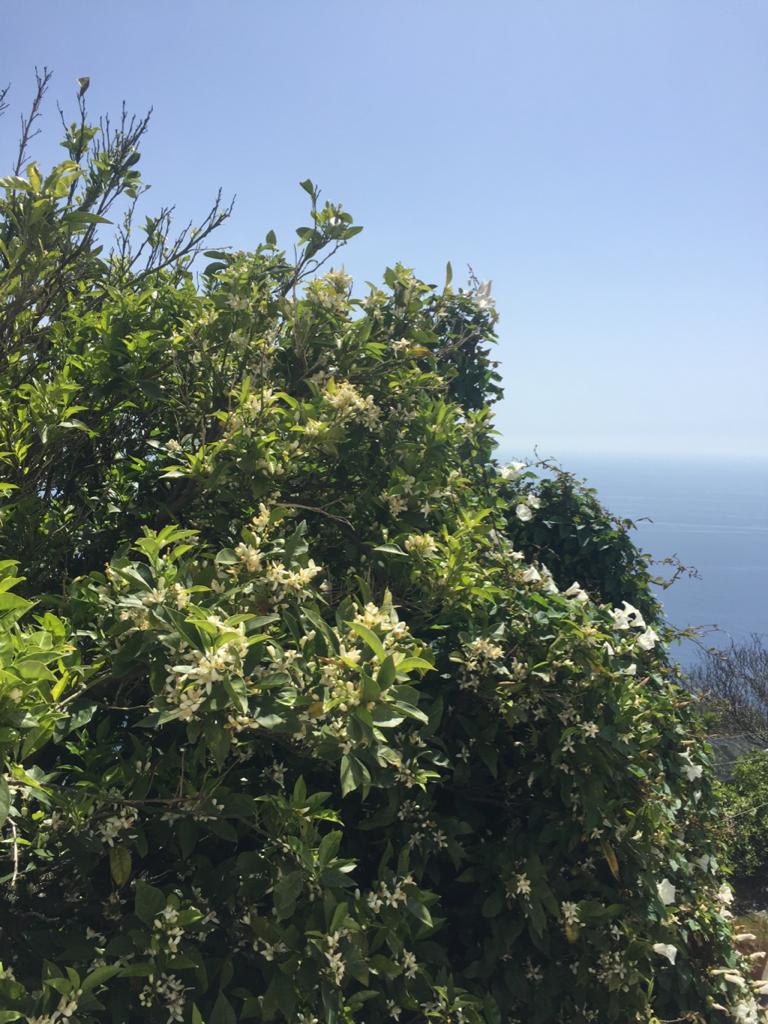
And then he looks down to the water, roughly 1400 steps away. As a high school student, he walked up and down these stairs twice a day to get to school, and thought nothing of it.
“The sea bottom is clearer than it has been in 60 years!” he exclaimed to me yesterday in a note. “It is absolutely staggering. Very soon if we stop our interfering we can expect a return of what we have destroyed.’
Giocondo then lists the fish that were the diet of his childhood : “Il guarracino, la vavosa, la perchia, il cazzillo del re, lo scorfano, la cannuta, il granchio, il polipetto, il marvizzo, le padelle. Up until the day of the lockdown we were poisoning them, bombing them out of the sea, with our destructive human actions. But they are coming back !”
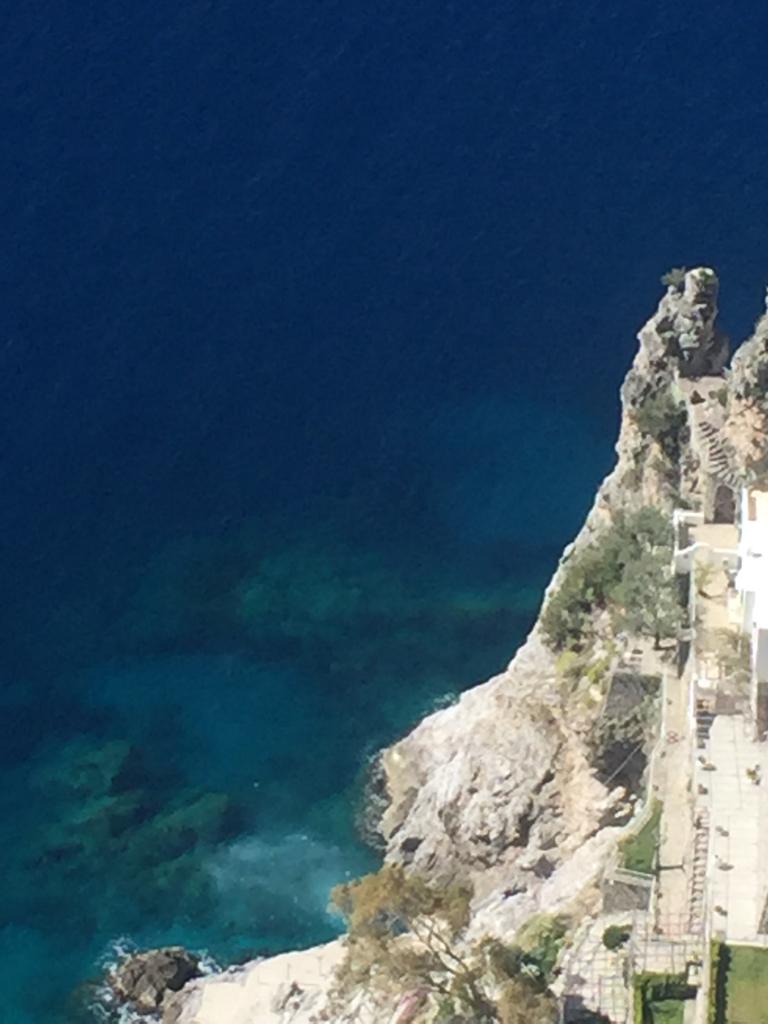
He sends this picture…
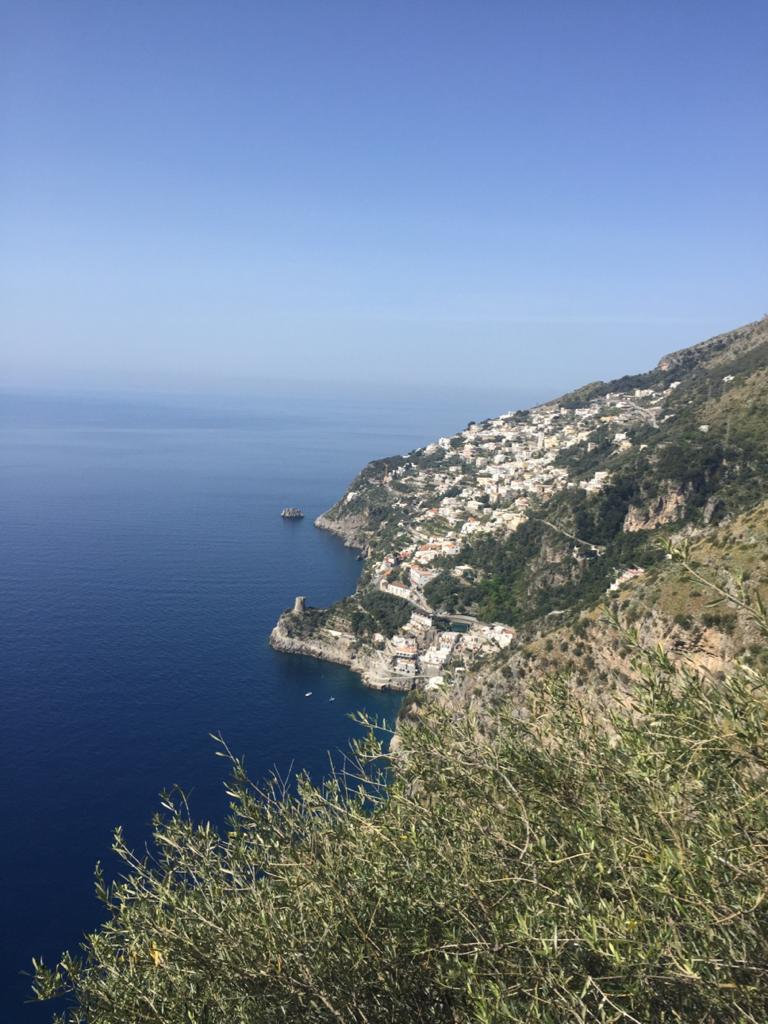
…and with it the caption : “Here a fisherman from Praiano has just rowed his boat back towards shore. We must detest those who monopolize the riches of the sea, which are not theirs’ to take, with the intent of having it all, and selling it all. Il vero male dell’umanita (‘the true ill of society’.)”
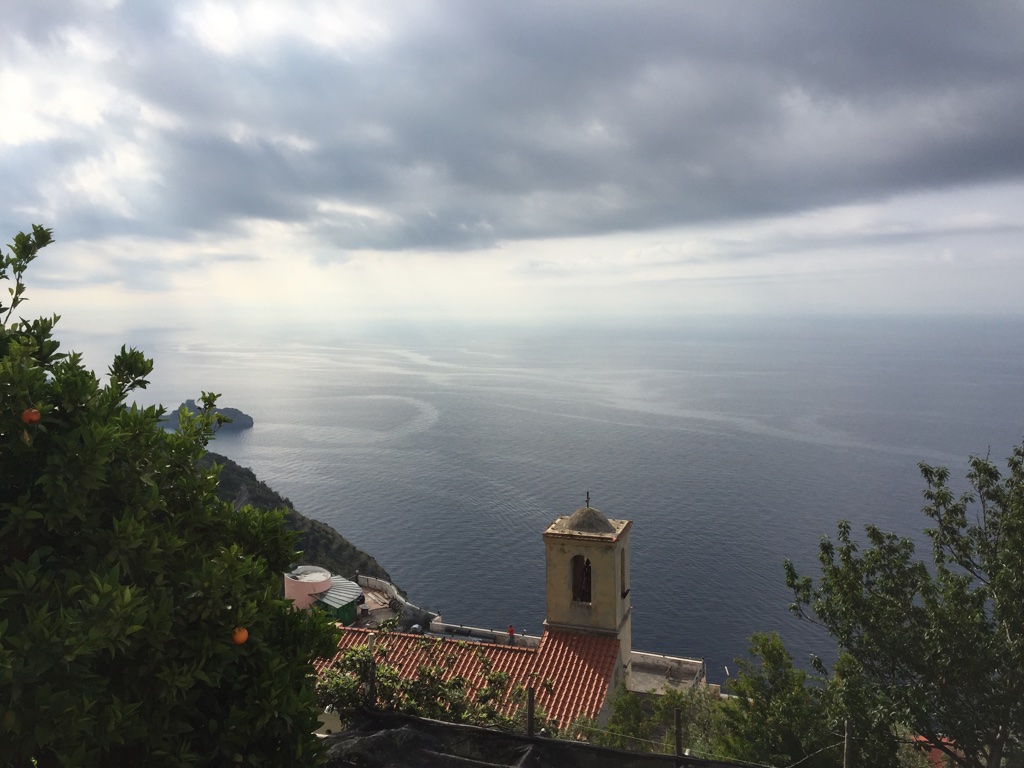
For weeks now, Giocondo has reported to me : “disarmingly perfect weather, once again no rain. Ten degrees centigrade warmer than it should be.”
The sea and the sky tell Giocondo if rain will be on the way. It never is. Even when a few clouds come flooding across the sky, Giocondo dismisses them. “No rain, a disaster. “
As Giocondo sets off to take his daily morning walk, he encounters Cristina.
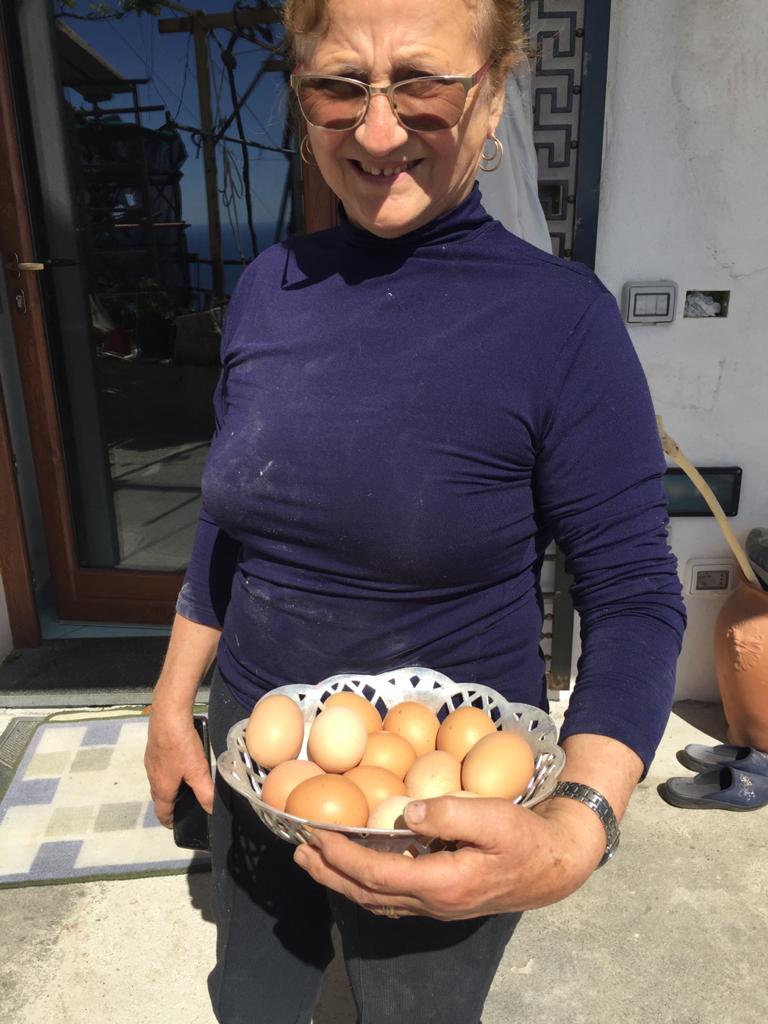
He captions this photo with these words : “Who is the richest man on the Amalfi Coast ? Me ! Because Cristina has just made me a present of three eggs from her hens which eat beautifully and live out of doors.”
On Friday morning he writes : “Today is a favorable day to bottle my wine : a dry wind from the north (the tramontana) and a gibbous waning moon, quite fundamental for bottling wine successfully. Still, the walk first, to enjoy the wild flowers and pick some for my studio. I will bring home artichoke flower, wild rose and wild gladiola.”
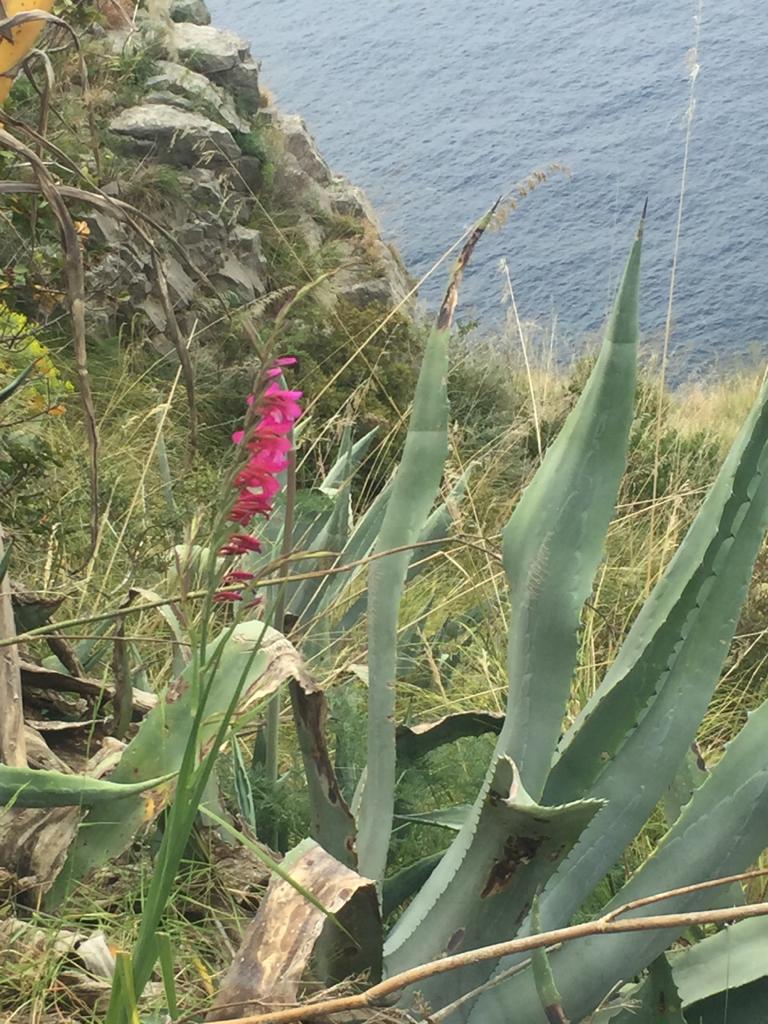
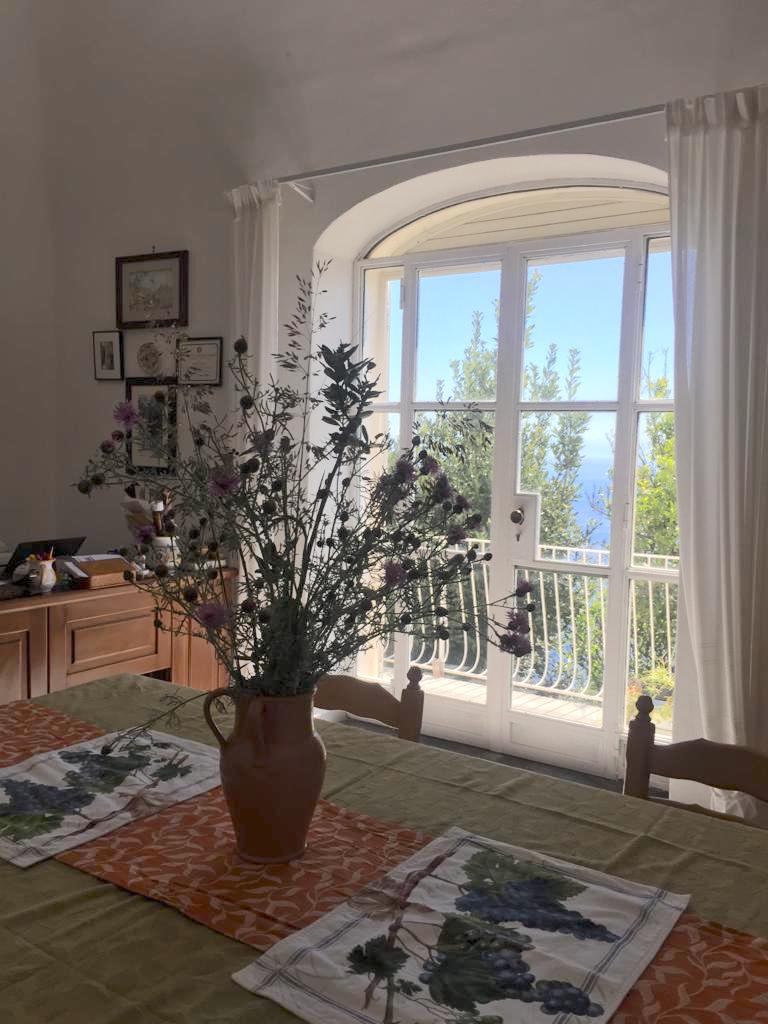
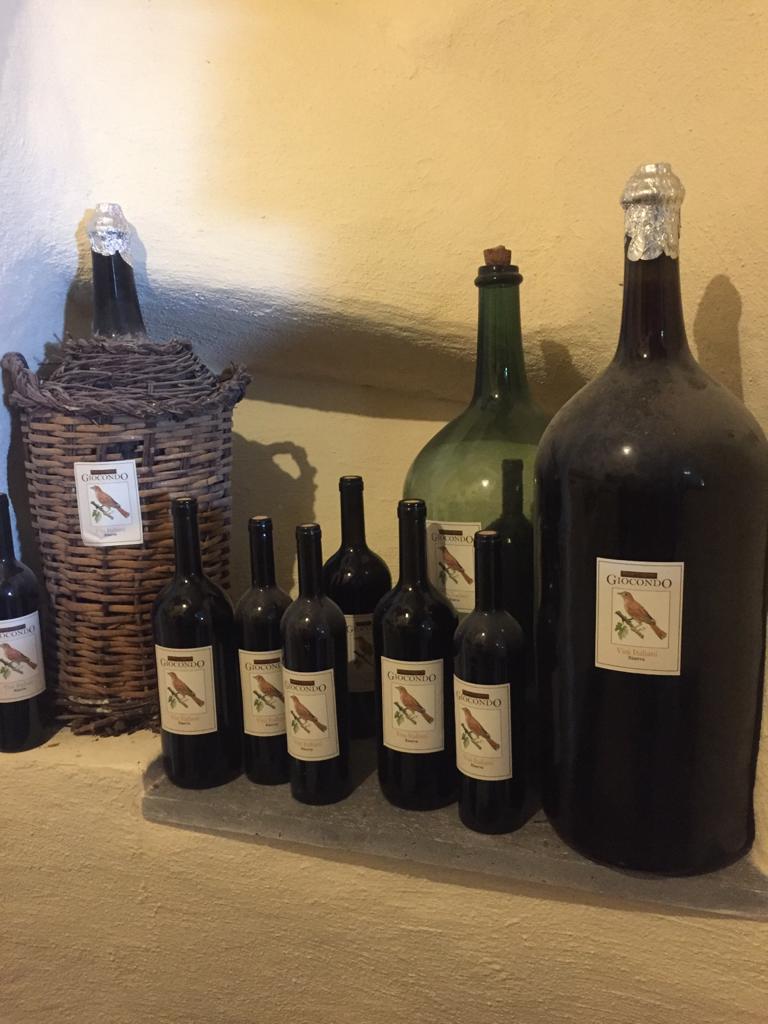
Later he sends a note (which I know is being enjoyed all around the world, because Giocondo has more friends than anyone I know) : “just completed a light lunch of orecchiette with broccoli and sausage, veal alla pizzaiola, a mixed salad and Easter pastiera. Then a coffee”.
Around 7 PM, as I am settling down to my own lockdown dinner, he sends me the photograph below with a note that poses this question : “an embarrassment of riches, shall I stay here and enjoy this view or shall I make myself a Negroni ?”
A minute later he writes : “I have resolved the problem, I will have both !”
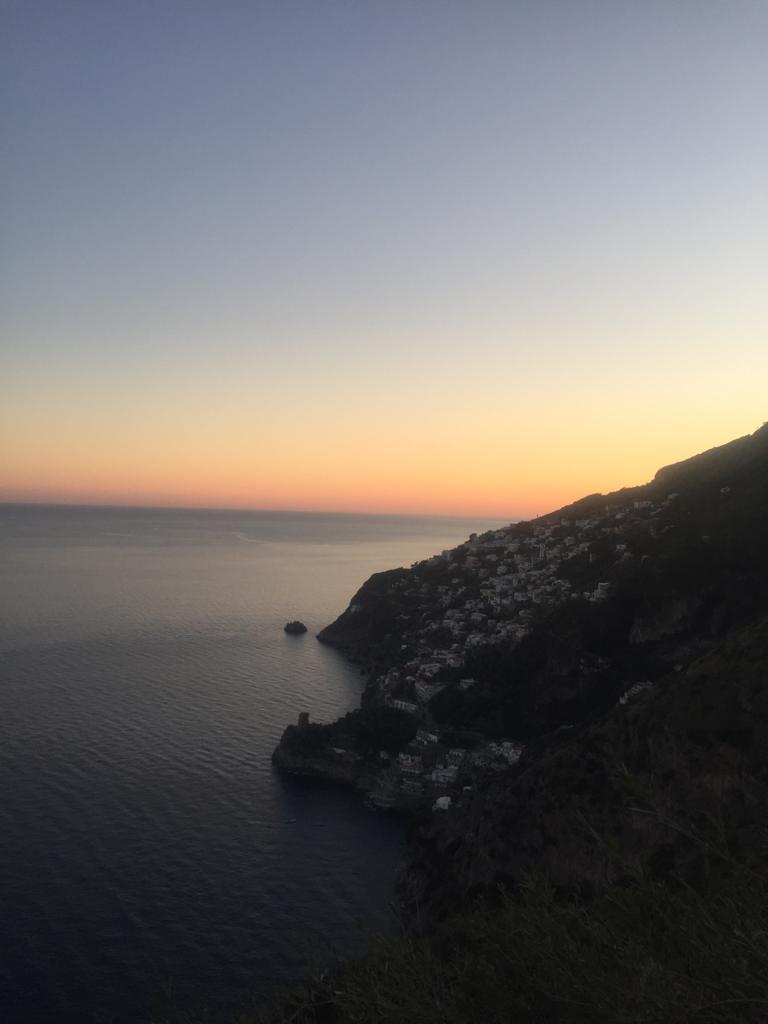
When Giocondo writes the following day, it is not a cliché : “We must reclaim what the real purpose is of life, massacred entirely by a senseless competition between human beings. Why do humans need to compete with one another ? Very difficult to do away with this terrible tendency. Coronavirus may be easier to eliminate. Una brutta storia (‘an ugly situation’) !”
He later reports that he is making bread in Cristina’s bread oven.
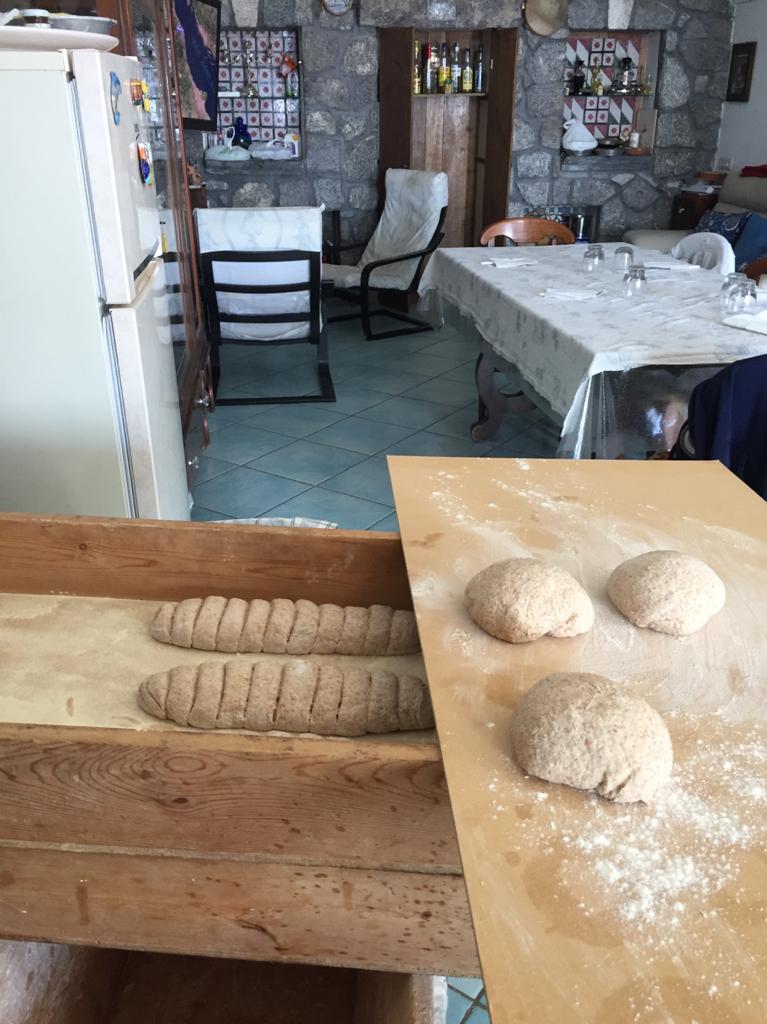
And sends me a photograph of the “bzoga“, which is a dialect word used only in Furore, Agerola and Conca dei Marini and means an unmarried woman. The local tradition, when a woman made the family’s bread (sufficient for a month), was to also make the bzoga for the children, shaping it to represent a small female figure. Bzoga is a corruption of bambola, or doll, as the bzoga looks like an edible doll.
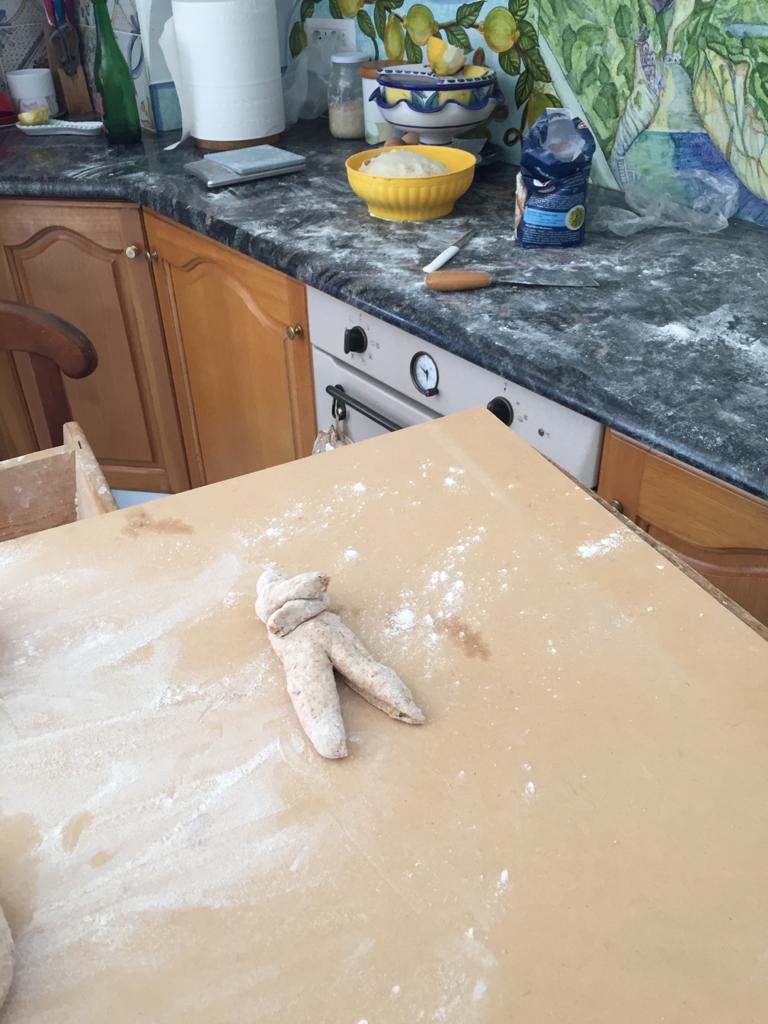
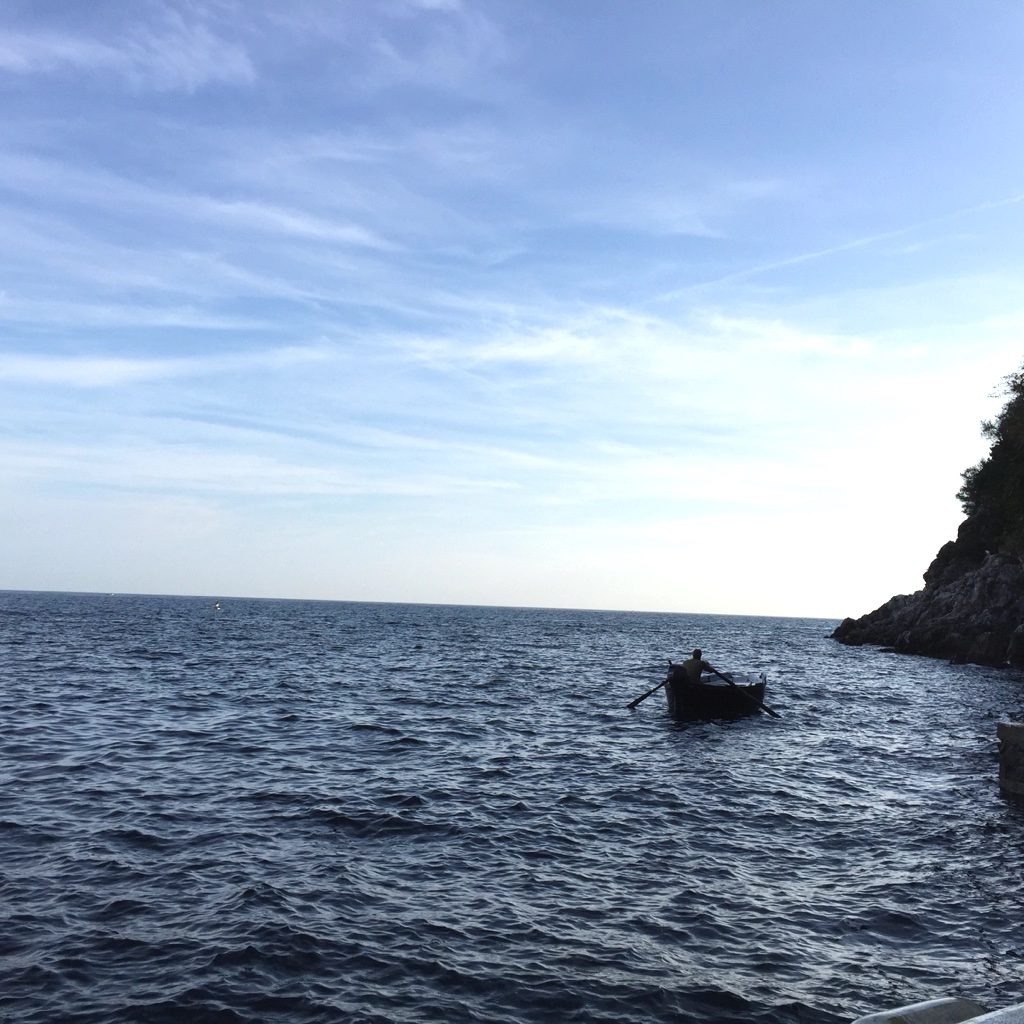
Today Giocondo wrote me this :
‘My mother and father but especially my mother insisted that all five of us children study so that we could all take on professional careers.
She was born of a peasant mother and a fisherman father, and she felt strongly that besides studying we should develop a deep respect for nature and for peasant practices. The result of this was not bad because each of us is quite accomplished with each the hoe and the pen.
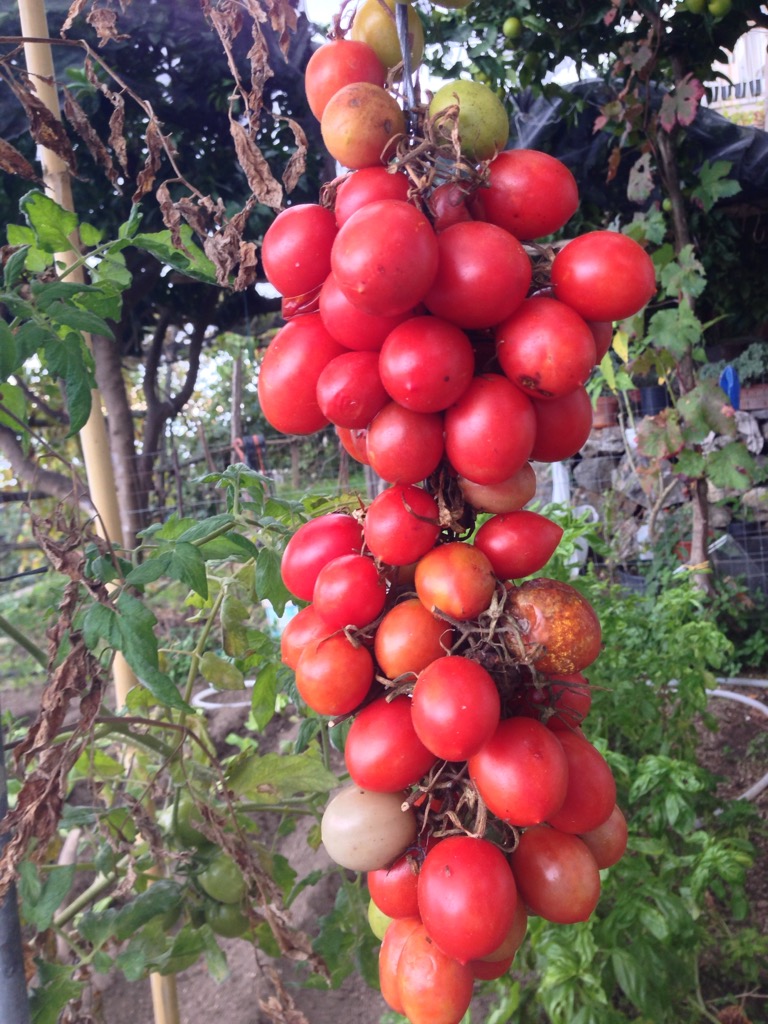
Then her grandchildren arrived. The first was the daughter of my brother Giuseppe. As tradition required, she bore her grandmother’s name : Maria Felicia. Maria Felicia studied and became an engineer, with a construction specialization. Bravissima ! A very good person and an accomplished professional. At first my mother was delighted, but then as time went on, her super-busy-granddaughter-engineer had no time to talk to her grandmother anymore.
‘I’m very sad for my granddaughter’, my mother once said to me. ‘If in another life I come back to earth I want to be a peasant as I have always been’. Sincere words from my mother.
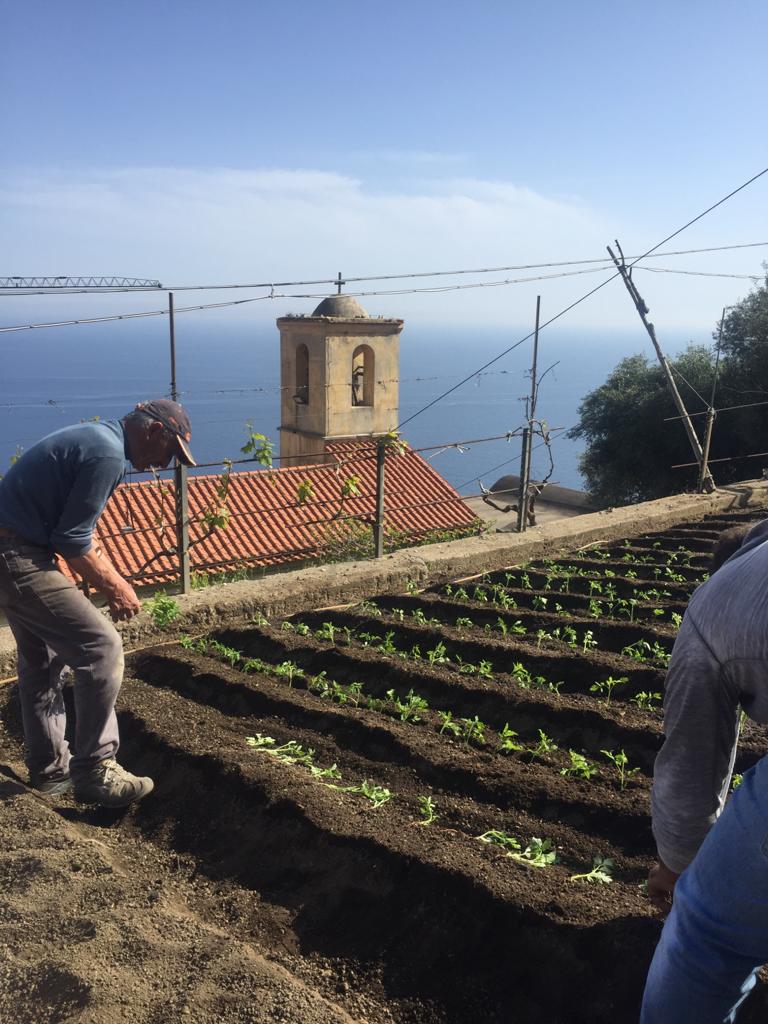
I had a delicious lunch today: wild chicory with olive oil, salad and fennel, a glass or two of my wine. All very special because they are products of excellent soil, come straight from the peasant tradition, and are in every way unadulterated, produced with wisdom, respect and vision.
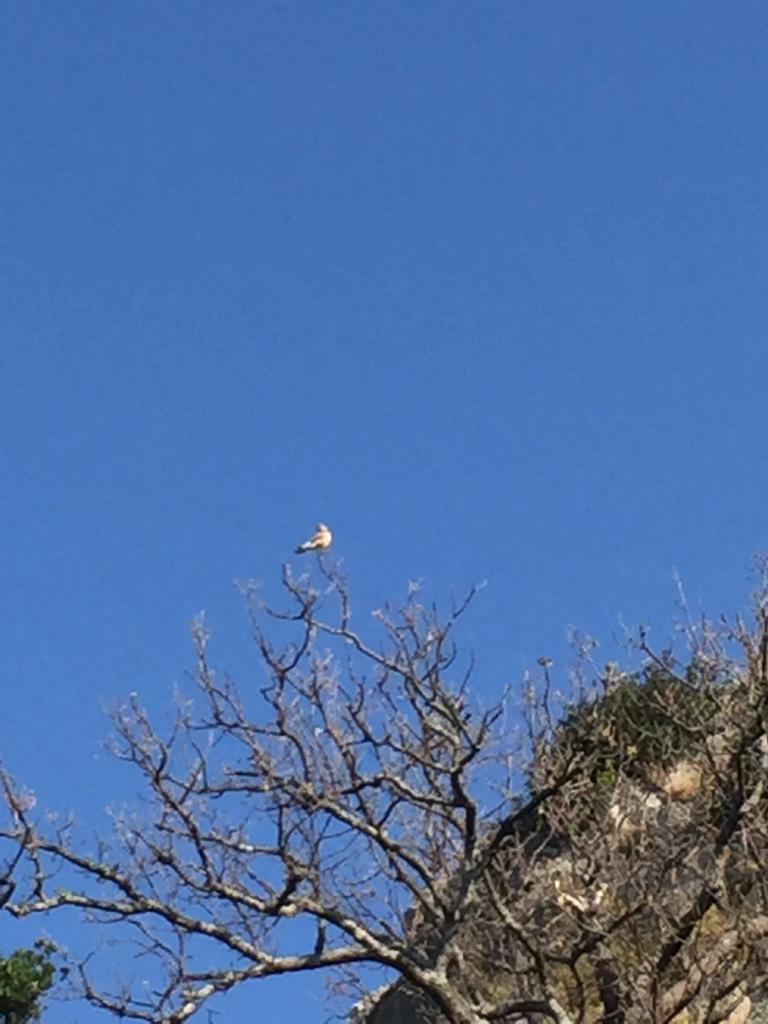
One of the species I am so happy to be seeing regularly now is colarosse, a small Mediterranean bird which loves to eat the berry of the alaterno tree (Rhamnus alaternus, or buckthorn.)
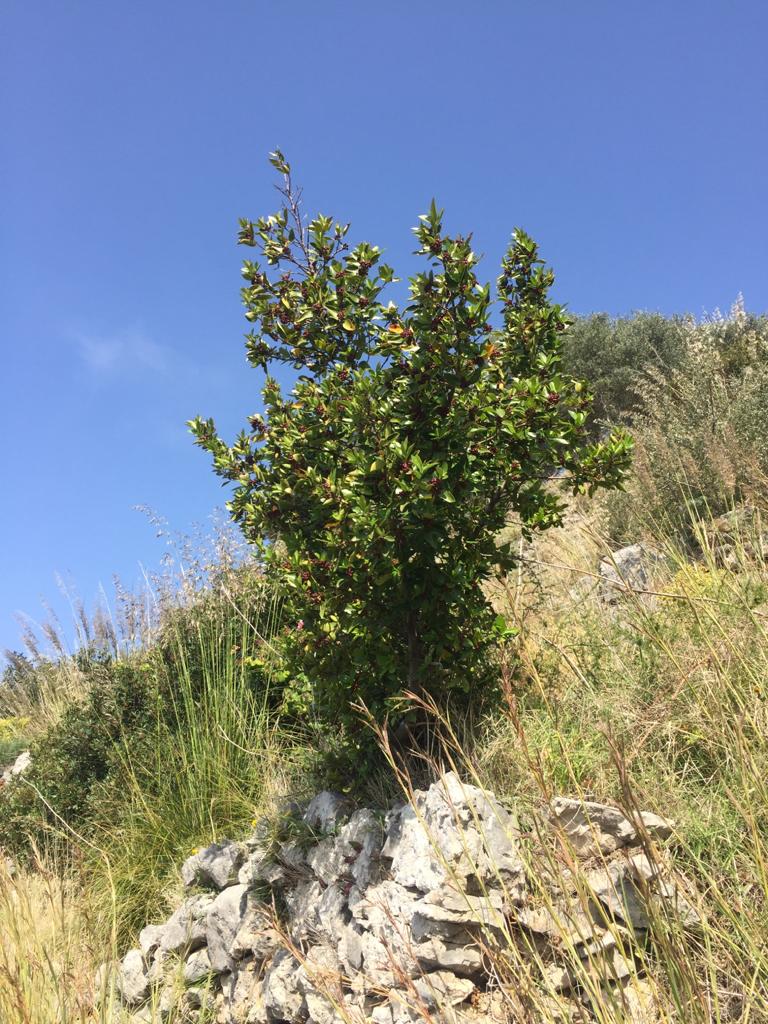
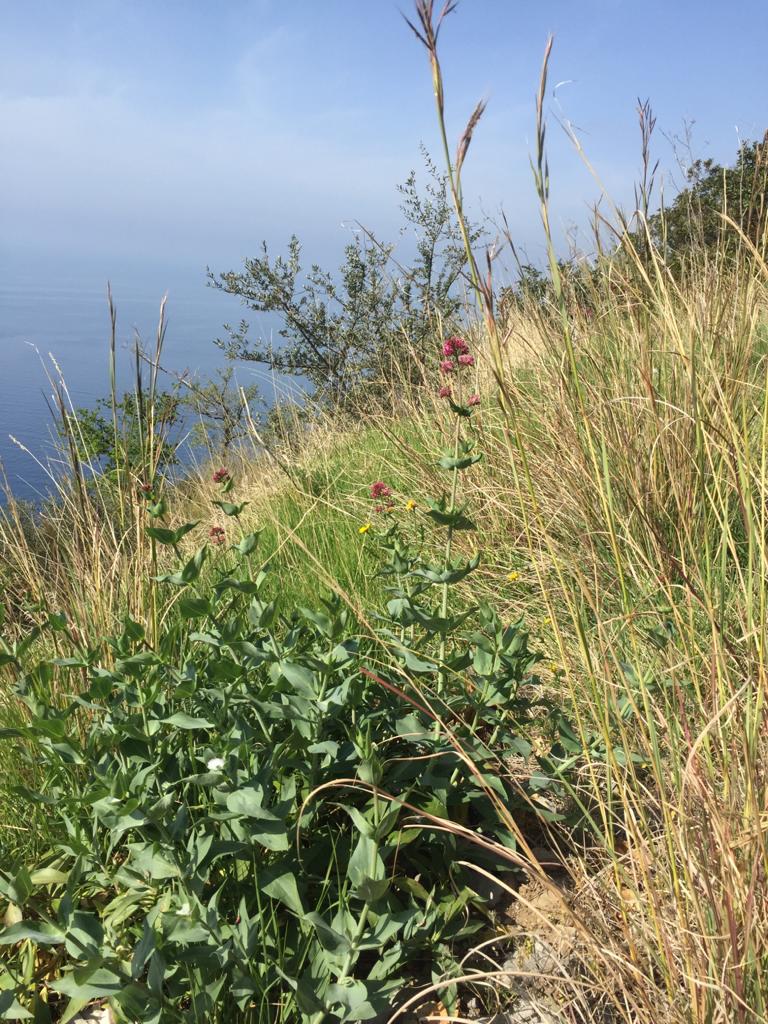
This picture is of valeriana, a spring and summer flowering herb that when eaten by cows gives a remarkable flavor to their milk. We all grew up on this milk around here, and maybe that is why we are all so healthy in Furore, with robust immune systems due to our genuine, healthy childhood diets.
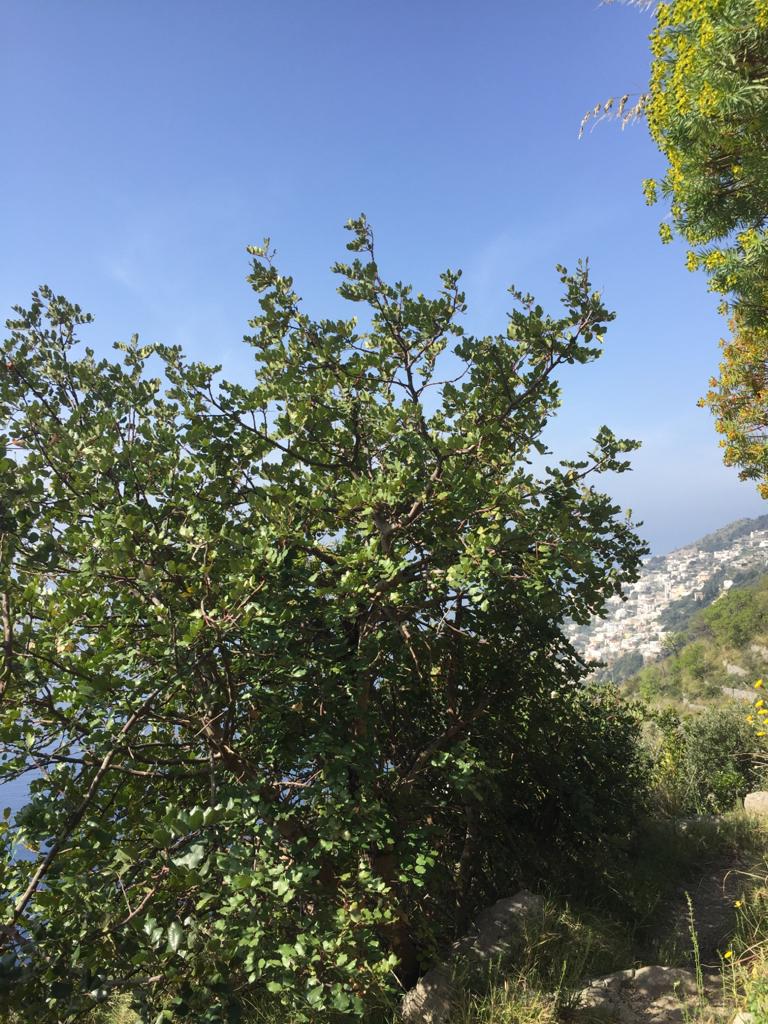
This is carob, which once Furore produced in vast amounts, hundreds of tons of it. It was an outstanding food for horses and pigs. The flavor of pork meat from pigs that consume carob is something quite incredible.
But now no one tends the trees at all, and there are very few of them left.
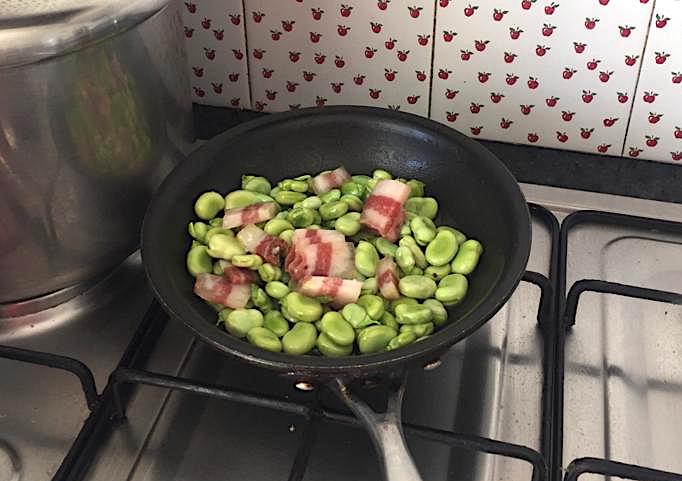
For dinner I am preparing fava from the garden. For this dish you must include some pancetta ! My Cerasuolo wine dilutes its saturated fat.
This is good pancetta but it would have been quite something else had the pig been fed on carob. Excellent for both the pig’s health, and my own.
I was thinking today what precisely is this ‘normality’ that everyone longs for ? ‘Normality’ means intense ground traffic, intense air traffic, intense ocean traffic, polluting industry, heavy metal concentrations in the air and premature deaths.
Marjorie, I have to say that I am terrified by this ‘going back to normal’.
Normal ? Normal ? How about you ? Are you as terrified as I am ?”
